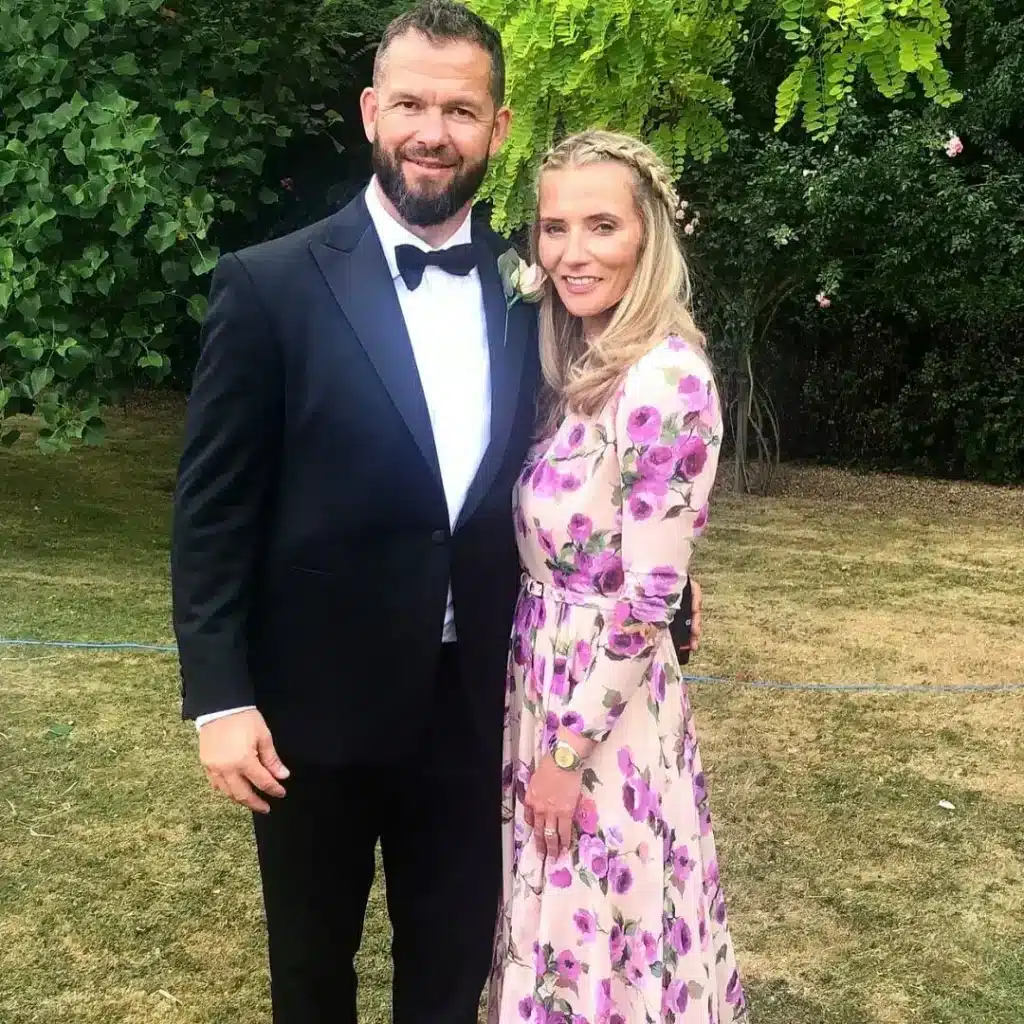As Andy Farrell enjoys some well-earned downtime after leading the 2025 British & Irish Lions, one figure remains central away from the spotlight — his wife, Colleen.
The pair have been side by side for nearly 30 years, navigating everything from becoming parents as teenagers to the rollercoaster of Farrell’s playing and coaching career. They’ve even packed up and moved their lives across the Irish Sea.
Join RUCK’s Instagram broadcast channel and get the latest rugby news straight to your phone.
Both grew up in Wigan, Manchester, with Irish roots stretching back generations. Andy previously told The Irish Times: “Everyone from the north-west of England is from Ireland. You go from Liverpool straight across the easy Lancs to Manchester and it’s full of Irish. I’ve got [Dublin] ancestry that goes back three or four generations, and so has my wife.”
The couple has never publicly shared how they first met, but Andy’s former Wigan teammate Sean O’Loughlin — who also happens to be Colleen’s brother — may have played a part.
They became parents at 16, when their son Owen was born in September 1991. He’d go on to follow in Andy’s footsteps, becoming England’s captain and even playing alongside his father in 2008.
Andy’s old teammate Kris Radlinski once recalled: “Andrew and Colleen were young parents and that brings its different issues, but Andrew bringing Owen to work was great – he wasn’t any trouble to anybody. At the end of training everyone had time for him.”
Married in 1995, they later welcomed daughters Gracie and Elleshia and youngest son Gabriel — who may yet continue the Farrell rugby legacy.
While Andy now coaches Ireland, Owen plays for England — creating complex emotions at home. Andy once admitted to the Irish Independent: “The hardest part is certainly for Colleen. Yeah, 100 per cent. And Owen’s sisters, and the young fella Gabriel, it’s weird for them. They’ve got unbelievably mixed emotions, I’ve no doubt… they hope that both sides do well. And that’s not going to happen, is it?”
Colleen keeps her sense of humour, once posting a photo of Gabriel in both teams’ kits, captioned: “This ok for Twickenham? Not Gabe with two tops on,” with a laughing emoji.
Now a stylish grandmother to Owen’s two sons, Colleen shines just as brightly off the pitch — recently rowing 100km for an IRFU charity challenge, calling it a “privilege” to take part.
EDITORS PICKS:
odbye Caterpillar ruck” – Four more rugby law changes for 2025
Rugby thrives on a mix of tradition and evolution, but some laws may no longer serve the game as effectively as they once did.
As the sport grows faster, stronger, and more tactical, certain laws stand out as ripe for reconsideration—not to upend the game, but to make it fairer, safer, and more exciting.
We highlight four specific laws that, with thoughtful updates, could better reflect the way rugby is played today. These ideas come from a deep respect for the game and a desire to see it flourish for players and fans alike.
World Rugby has shown it’s willing to adapt in recent years—these could be the next steps in that evolution.
1. Fewer Substitutions
Rugby has changed significantly over the years, and one of the biggest shifts is how the bench is used. These days, teams often bring on almost an entirely new forward pack late in the game. Big, fresh players crash into tired defenders, making the final 20 minutes less about skill and endurance, and more about brute force. Many fans and former players feel this has turned rugby into a collision sport rather than a contest of stamina and intelligence.
Reducing the number of substitutions would encourage players to pace themselves. Space would open up in the second half, creating more opportunities for creative play rather than endless phases of pick-and-go. It would reward fitness, smart decision-making, and those capable of performing for the full 80 minutes.
Fewer substitutions wouldn’t just make the game more exciting—it would make it fairer, safer, and more in line with the spirit of what rugby has always been about.
With the rise of 6–2 and even 7–1 bench splits, pioneered by Rassie Erasmus, the trend seems to be heading in the opposite direction. That’s all the more reason to act now.
Like this:
Like Loading…


